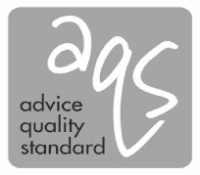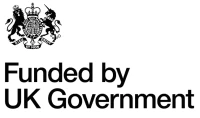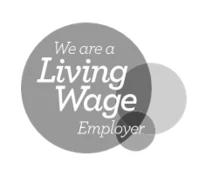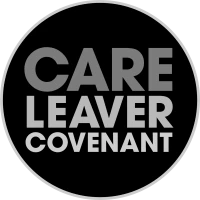How should the policy be used?
This policy must be followed by all staff and volunteers, including senior managers and trustees. It also applies to anyone working on behalf of Citizens Advice Portsmouth.
This policy focuses on safeguarding concerns about adults that stem from interactions with clients and other people who access our service; however, the legal duties and principles outlined in this document apply to people who aren’t our clients. For example, our staff, volunteers, beneficiaries or other connections who meet the definition of adults at risk.
There is a separate policy for safeguarding children.
No one should ignore allegations or suspicions of abuse or neglect.
Why do we have a policy?
We have a policy to:
- stop abuse and neglect where
- prevent harm and reduce the risk of abuse and neglect
- provide staff and volunteers with overarching principles that guide our approach to
It’s important we have a policy because we provide services to a range of adults, and we may suspect or be told about current or historic abuse or neglect. Our safeguarding guidelines and procedures will ensure that staff and volunteers are able to deal appropriately with these situations. This will include:
- having sound recruitment practices
- ensuring all staff and volunteers have an understanding and awareness of adult
- ensuring all staff and volunteers know how to raise safeguarding concerns and feel confident doing so
Our legal and membership duties
It is a requirement of Citizens Advice membership that we act within the relevant laws and regulations to safeguard people who come into contact with our service from harm and abuse.
Protecting people and safeguarding responsibilities are a governance priority for our organisation. It is a fundamental part of how we operate as a charity for the public benefit. Safeguarding is the responsibility of everyone at our organisation.
The legislation covering safeguarding is the Care Act 2014 (England) and the Social Services and Wellbeing (Wales) Act 2014. These acts put duties on local authorities in relation to adult safeguarding. We will take these duties into account in our work with people who come into contact with our service and support the local authorities to fulfil their statutory duties where possible.
They include:
- stopping abuse or neglect wherever possible
- preventing harm and reducing the risk of abuse or neglect to adults with care and support needs
- safeguarding adults in a way that supports them in making choices and having control about how they want to live.
- promoting an approach that concentrates on improving life for the adults
- raising public awareness so that communities as a whole, alongside professionals, play their part in preventing, identifying and responding to abuse and neglect.
- providing information and support in accessible ways to help people understand the different types of abuse, how to stay safe and what to do to raise a concern about the safety or wellbeing of an adult.
- addressing what has caused the abuse or neglect
Who is protected by this policy?
We recognise that many policies and organisations refer to ‘adults at risk’ or ‘vulnerable adults’. This policy adopts the broader definitions introduced in recent legislation such as the Care Act 2014 and the Social Services and Wellbeing (Wales) Act 2014. Their definitions are broader and far-reaching and could potentially cover many of our service users.
Under the Care Act 2014 and the Social Services and Wellbeing (Wales) Act 2014 safeguarding duties apply to an adult who:
- has care and support needs, and
- is experiencing, or is at risk of, abuse or neglect, and
- is unable to protect themselves because of their care and support needs
An adult with care and support needs may be:
- an older person
- a person with a physical disability, a learning difficulty or a sensory impairment
- someone with mental health needs, including dementia or a personality disorder
- a person with a long-term health condition
- someone who misuses substances or alcohol to the extent that it affects their ability to manage day-to-day living
We will apply this policy equally to all adults who use come into contact with our services regardless of age, race, disability, gender reassignment, marriage and civil partnership status, pregnancy and maternity, religion and belief, sex and sexual orientation.
Clients may come into contact with our service through different channels that aren’t always face to face, for example, email, web chat or phone. The principles of safeguarding outlined in this policy will be applied consistently to all safeguarding concerns across the various channels through which we operate our service.
What do we mean by safeguarding?
‘Safeguarding’ typically relates to children (defined as individuals under 18 - see our safeguarding children policy) and adults at risk (also known as vulnerable adults), for which specific legislation and regulatory requirements apply. However our regulator, the Charity Commission, has adopted a broader definition of safeguarding.
In its guidance it describes safeguarding as ‘the range of measures in place to protect people in a charity, or those it comes into contact with, from abuse and maltreatment of any kind’.
This is therefore our definition.
Principles for guiding our safeguarding activities
We will use these principles to guide our safeguarding activities. They are also used by local authorities and other statutory bodies to direct their adult safeguarding activities:
- empowerment - actions or decisions must be based on the presumption of person-led decisions and informed consent
- prevention - it is better to take action before harm occurs
- proportionality - the least intrusive response appropriate to the risk presented
- protection - support and representation for those in greatest need
- partnerships - local solutions through services working with their communities
- accountability - accountability and transparency in delivering safeguarding
Fundamental to this policy is our aim to involve the person the concern is about in decisions about what should happen wherever possible.
Recognising the different types of abuse and risk
The indicators provided below are not an exhaustive list of signs and symptoms of someone suffering abuse and neglect.
|
Type of abuse |
Indicators of abuse |
|
Physical abuse: This type of abuse involves hitting, kicking, spitting and biting. It can also involve restraining someone, making someone intentionally uncomfortable or withholding food, water or medication |
These could include if someone has physical injuries such as bruising, cuts or burns and is unable to provide a consistent explanation of the injuries they have. |
|
Domestic violence or abuse: This type of abuse not only applies to physical abuse but also includes the following: ● psychological ● sexual ● financial ● emotional It includes any incident or pattern of incidents of controlling, coercive or threatening behaviour, violence or abuse between those aged 16 or over who are or have been, intimate partners or family members regardless of gender or sexuality. It also includes socalled 'honour’-based violence, female genital mutilation and forced marriage Note that if the concern is about someone who is below the age of 18 we apply our safeguarding children policy |
These could include the following: ● low self esteem ● feeling that the abuse is their fault when it is not ● physical evidence of violence such as bruising, cuts, broken bones ● verbal abuse and humiliation in front of others ● fear of outside intervention ● damage to home or property ● isolation – not seeing friends and family ● limited access to money |
|
Sexual abuse: This type of abuse includes rape, any inappropriate touching, indecent exposure, sexual acts to which the adult has not |
It may be more difficult to pick up on indicators for this type of abuse as they can include physical symptoms such as bruising or bleeding in places covered by clothing. However the following may be noticeable: |
|
consented or lacks the capacity to consent, sexual photography or forced use of pornography or the witnessing of sexual acts |
● bruising to the upper arms and marks on the neck ● unusual difficulty in walking or sitting ● self harming |
|
Psychological and emotional abuse: This type of abuse includes including emotional abuse, threats of harm or abandonment, deprivation of contact, humiliation, blaming, controlling, intimidation, coercion, harassment, verbal abuse, cyber bullying, isolation or unreasonable and unjustified withdrawal of services or supportive networks |
The indicators of this type of abuse can include the following: ● an air of silence when a particular person is present ● withdrawal or change in the psychological state of the person ● insomnia ● low self-esteem ● uncooperative and aggressive behaviour ● a change of appetite, weight loss/gain ● signs of distress: tearfulness, anger ● apparent false claims, by someone involved with the person, to attract unnecessary treatment |
|
Financial or material abuse: This type of abuse can involve theft, fraud, internet scamming, coercion in relation to an adult’s financial affairs or arrangements, including in connection with wills, property, inheritance or financial transactions, or the misuse or misappropriation of property, possessions or benefits |
These could include the following: ● unexplained lack of money or inability to maintain lifestyle ● unexplained withdrawal of funds from accounts ● power of attorney or lasting power of attorney (LPA) being obtained after the person has ceased to have mental capacity ● the person allocated to manage financial affairs is evasive or uncooperative ● the family or others show unusual interest in the assets of the person ● signs of financial hardship in cases where the person’s financial affairs are being managed by a court-appointed deputy, attorney or LPA ● recent changes in deeds or title to property ● rent arrears and eviction notices ● disparity between the person’s living conditions and their financial resources, e.g. insufficient food in the house ● unnecessary property repairs |
|
Modern slavery: This type of abuse encompasses |
These could include the following: |
|
slavery, human trafficking, forced labour and domestic servitude
Note that if modern slavery is suspected we may also use the National Referral Mechanism as well as going through our safeguarding referral process |
● signs of physical or emotional abuse ● appearing to be malnourished, unkempt or withdrawn ● isolation from the community, seeming under the control or influence of others ● living in dirty, cramped or overcrowded accommodation and/or living and working at the same address ● lack of personal effects or identification documents ● always wearing the same clothes ● avoidance of eye contact, appearing frightened or hesitant to talk to strangers |
|
Discriminatory abuse: Including forms of harassment, slurs or similar treatment because of age, race, religion or belief, sex, sexual orientation, gender reassignment, disability, marriage and civil partnership, pregnancy and maternity |
● the person appears withdrawn and isolated ● expressions of anger, frustration, fear or anxiety ● the support on offer does not take account of the person’s individual needs in terms of a protected characteristic |
|
Organisational or institutional abuse: Including neglect and poor care practice within an institution or specific care setting such as a hospital or care home, for example, or in relation to care provided in one’s own home. This may range from one-off incidents to ongoing illtreatment |
These could include the following: ● inadequate staffing levels ● people being hungry or dehydrated ● poor standards of care ● lack of personal clothing and possessions and communal use of personal items ● lack of adequate procedures ● poor record-keeping and missing documents ● absence of individual care plans ● lack of management overview and support |
|
Neglect and acts of omission: Including ignoring medical, emotional or physical care needs, failure to provide access to appropriate health, care and support or educational services, the withholding of the necessities of life, such as medication, adequate nutrition |
These could include the following: ● failure to provide or allow access to food, shelter, clothing, heating, stimulation and activity, personal or medical care ● providing care in a way that the person dislikes ● failure to administer medication as prescribed ● refusal of access to visitors ● not taking account of the person’s cultural, |
|
and heating |
religious or ethnic needs |
|
Self neglect: This covers a wide range of behaviour that is neglecting to care for one’s personal hygiene, health or surroundings and includes behaviour such as hoarding |
These could include the following: ● very poor personal hygiene ● unkempt appearance ● lack of essential food, clothing or shelter ● malnutrition and/or dehydration ● living in squalid or unsanitary conditions ● neglecting household maintenance |
ASK routine enquiry programme - Gender Violence (domestic abuse)
Background and introduction to the ASK RE Programme.
We participate in the ‘ASK Routine Enquiry Programme’ which involves us actively asking clients about gender-based violence and abuse (GVA) during unaccompanied face to face appointments.
GVA is an umbrella term to cover violence and abuse that affects women, men and children, which is based on gendered power in relationships. It disproportionately affects women and girls. It includes domestic violence and abuse; sexual harassment; ‘honour-based’ abuse and forced marriage; trafficking; rape and sexual violence; stalking; and female genital mutilation (FGM).
Following training, our advisers and supervisors use the ASK programme with clients during debt, housing, family and benefit enquiries. They ask a routine question of both women and men in unaccompanied face to face advice settings about whether they are experiencing gender based violence and domestic abuse, or have in the past, and will support and advise the client appropriately should there be a positive disclosure.
The ASK guidance pack for supervisors contains additional information about the importance of safeguarding processes when using the programme.
Radicalisation and safeguarding
If we are concerned about an adult at risk becoming radicalised, we follow our safeguarding procedure.
We take also take guidance from the government counter terrorism ‘Prevent Strategy’. one of the aims of which is supporting ‘vulnerable people’ to prevent them being drawn into terrorism.
Our staff and volunteers will be mindful of radicalisation and report any concerns using our safeguarding adult and children policies.
Confidentiality and safeguarding
Confidentiality is one of the founding principles of Citizens Advice. It is important that our clients can trust us and know that the information they disclose is treated in confidence.
However, if we have suspicions or information has been disclosed in relation to abuse, we have a responsibility to take action. Our principles do not override the need to protect adults at risk from abuse.
In accordance with the principle of empowerment, the decision on whether to report a safeguarding concern should normally be discussed with the person the concern is about and where possible their permission should be gained to report the concern.
However, there will be situations when confidentiality between ourselves and the client needs to be breached without their permission. This includes situations where the person we’re concerned about is in serious and immediate danger and there’s no time to get permission, it’s not possible to get permission or the person is not able to give permission (abuser is always present). Also we would not try to get permission if there’s a chance it would put the person we’re concerned about in more danger.
In these situations the wellbeing of the client or others who may be at risk takes precedence over our principal of confidentiality. Our safeguarding procedure details the process for breaching confidentiality and raising a safeguarding concern.
Mental capacity and safeguarding
We’ll assume that adults have the mental capacity to make informed decisions about their own safety and how they live their lives. The Mental Capacity Act 2005 is central to decisions and actions in safeguarding adults.
Where a person is able to make an informed choice in relation to a particular decision, they have a right to self-determination.
In practice, it may come to light that an adult at risk does not have capacity to make informed decisions about their own situation. One way this could occur is if an adult at risk’s carer has a registered lasting power of attorney for one or more of the adult at risk’s affairs. If there is reason to believe that the adult at risk is being abused, has been abused in the past, neglected or exploited by the person they attended with, it will be difficult to have a conversation with the adult at risk alone. If getting permission to report a safeguarding concern puts a person in greater danger then steps can be taken without getting permission using the safeguarding procedure. In these circumstances it is important to include the reason why permission was not asked for on the safeguarding concern form.
If it is not clear if an adult has the capacity to make an informed decision, staff and volunteers should talk to the safeguarding lead and use the safeguarding procedure.
Factors which will be relevant in determining whether a safeguarding concern should be reported about a person who lacks capacity to make the decision themselves are if the person can’t:
- understand information about the decision to be made on whether or not to report a concern because of a safeguarding reason, or
- retain that information in their minds, or
- use or weigh up that information as part of the decision making process, or
- communicate their decision (by talking, using sign language or other means)
Screening of staff and volunteers
We ensure that all staff and volunteers who work in roles which are legally entitled to get a Disclosure and Barring Service (DBS) check are screened, we will also ask for appropriate references as part of our screening process and reserve the right to await the results of DBS checks and references before allowing an person to start in that role. If a role is not entitled to a standard or enhanced check, our chief officer may choose to ask some staff or volunteers to undergo a basic check.
If a DBS check reveals an unspent conviction for a sexual offence against a child or vulnerable adult, the individual is not suitable for that role and will not be taken on. Any other convictions will be considered on an individual basis.
Further information can be found in our DBS and ex-offenders policies.
Supervision, training and safeguarding
Thorough induction training will be provided to ensure that staff and volunteers are aware of good safeguarding practice alongside the service’s core values and confidentiality.
Staff and volunteers will be given regular supervision and have their training needs assessed.
Regular case checking will take place and any unusual or excessive contact with an adult at risk will be investigated.
Appropriate safeguarding training is available to all staff and volunteers. This may be in the form of:
- policy awareness sessions delivered internally
- briefing sessions by a local authority or other relevant authority
- attendance at training arranged through partner
If a staff member or volunteer is removed from their role
If a staff member or volunteer is moved or dismissed from their role because of safeguarding concerns arising from their actions or inactions, we have a responsibility as a regulated activity provider to inform the Disclosure and Barring Service. We will follow the guidance set out by the Disclosure and Barring service in these situations.
Developing new services
Any new services in development will take account of the need to safeguard adults at risk. This may be achieved by:
- risk assessment of proposed activities
- agreeing safeguarding measures with partner organisations including information sharing protocols
- seeking specialist advice, for example from the local safeguarding board
Working with local statutory agencies
Safeguarding Boards may carry out reviews or investigations and may require us to supply information. The boards are made up of representatives from local authorities and other statutory bodies and partner agencies.
We will supply information requested by a safeguarding board under the following circumstances:
- the information must be requested for the purpose of enabling the board to perform its functions
- the person or body requested to supply the information must have functions or engage in activities such that the board considers it likely to have information relevant to a function of the board
In general, there is no bar to us taking part in a safeguarding review, a criminal investigation or a Serious Case Review if required to. This is in the context of our policy on client confidentiality, and the confidentiality process will be used.
Working with local authority commissioners
Commissioners at local authority level sometimes want to see their own safeguarding protocols reflected in the local Citizens Advice policy. Some key actions we will consider taking are:
- before commissioning, ensuring that we are aware of the local authority designated safeguarding lead and the functions of their team, and the local Safeguarding Adults Board (England) or area-based Safeguarding Board (Wales)
- where possible before commissioning, participating in local authority safeguarding training or briefings
- before commissioning or early in commissioning, reviewing local authority safeguarding protocols to make sure our policy reflects local arrangements







